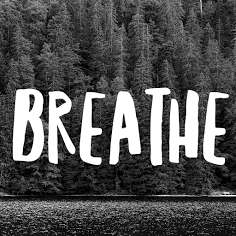 What if we told you that you could make your life better by doing small, simple things that have a big impact?
What if we told you that you could make your life better by doing small, simple things that have a big impact?
As a teacher, you exist in a world that is full of expectations. You want to help your students while also supporting your family and friends. It is easy to lose yourself, to fill everyone else’s bucket while leaving yours empty.
You deserve to find your own happiness and fulfillment in your life.
It is easy to get stuck in a rut and to accept the ordinary or mundane. That is not where life’s magic happens. Life’s magic happens when you are feeling alive, joyful, and empowered.
What are you doing when you feel most alive and joyous? What gives you the most energy? Consider how you can bring some of those elements into every day in small ways.
Small things, done repeatedly, have the power to make big changes. A slow trickle of water can create a canyon. One small rolling rock can start an avalanche. Choosing to take small actions can build momentum that will help you to continue a journey that will result in increased happiness.
“I always tell people if you want to know the secret to happiness,
I can give it to you in one word: progress.
Progress equals happiness.”
Tony Robbins
As individuals, we each thrive in different ways, and we need different things.
The following are some suggestions of small actions than you can implement to start building momentum. The actions start easy and get more and more powerful as you go down the list.
- Smile at someone. They will likely smile back. Smiling increases our mood-enhancing hormones and decreases our stress hormones.
- Add fruit or cucumbers to your water bottle. You’ll drink more and stay hydrated. Good hydration increases our overall energy and our ability to think clearly.
- Text a friend just to say “Hi” or wish them a good day. Positive relationships increase our happiness and even our life expectancy!
- Give a compliment- you’ll benefit from a good feeling as much as the recipient.
- Look out at a beautiful vista in nature and breathe. You will relax and feel calmer.
- Every day, congratulate yourself for one thing that you did well. Success builds more success.
- Laugh more. Tell a stupid joke. Joke around with a colleague. Watch a funny show or movie. Laughing reduces stress.
- Use the mindfulness feature on your smart phone or watch. It literally takes one minute!
- Here is a trick from personal development trainer Mel Robbins, every morning when you are in the bathroom, look at yourself in the mirror and give yourself a high five. It is a daily shot of confidence.
- No time for your favorite hobby? Try spending just five- to ten minutes. Play one song on the piano. Make a sketch. Do a few yoga poses. Read a few pages. Something is always more than nothing and engaging in a passion increases our happiness.
- Ask yourself, what is one small thing I could do to care for myself right now? Then do it. If you don’t care for yourself, who else is going to?
- Make plans to do something fun with a friend. You’ll have something to look forward to!
- Spend a few minutes journaling- it helps you to develop self-awareness.
- Think of a challenge that you are experiencing. Reframe it as, “how is this challenging offering me a chance to grow and be stronger?”
- What are your instincts telling you to do? Listen to that message. Instincts are often our inner wisdom guiding the way.
- Consider one routine that is working really well. How could you replicate it in other routines? Having strong routines opens up brain power and energy because you have fewer decisions to make.
- When you feel overwhelmed, get out of your head and into your body. Take a short walk. Immerse yourself in water. Dance in your living room for five minutes. You’ll feel more at peace and calmer.
- If you feel stuck, change a routine. Taking a different route to work, cooking something new, or talking with someone you don’t know well can open up creativity and new ways to solve a problem.
- When you feel yourself doubting that you can do something, challenge it. Come up with at least one example that whatever you are doubting is not true. Look at the evidence that proves you can do something. Your experiences in the past will give you strength for the future.
- Choose something in your life that is no longer serving you and let it go. This might be as simple as an article of clothing or a household object, or as complicated as a relationship. Letting go of things that no longer serve you will open space for better things.
Life is not about perfection. It is about moving in the right direction.You don’t need to upend your entire life to make your life better. You just need to focus on small, positive actions that add up to big momentum and that will help you make your life better.
Our best,
P.S.
If you would like more personal development for teachers, get our book, The Inspired Teacher’s Journal: A Weekly Guide to Becoming Yourt Best Self.
This guided journal is designed to help teachers live with intention in both their teaching life AND personal life.
Teaching is both rewarding and demanding. Teachers want to make a difference, but they also want a fulfilling life outside of school. The result of trying to be and do it all is stress and overwhelm.
In this guided journal, we will guide you to write, draw, reflect, and plan. In addition to the reflective journal pages, over 40 teachers share their best wisdom and advice. Together, we will inspire you to create your best life.
Best of all, you will learn to surround yourself with a star system of caring, supportive people who will encourage you, challenge you to rise higher, and lift you up when you need it.
Get your copy of The Inspired Teacher’s Journal: A Weekly Guide to Becoming Your Best Self here.













